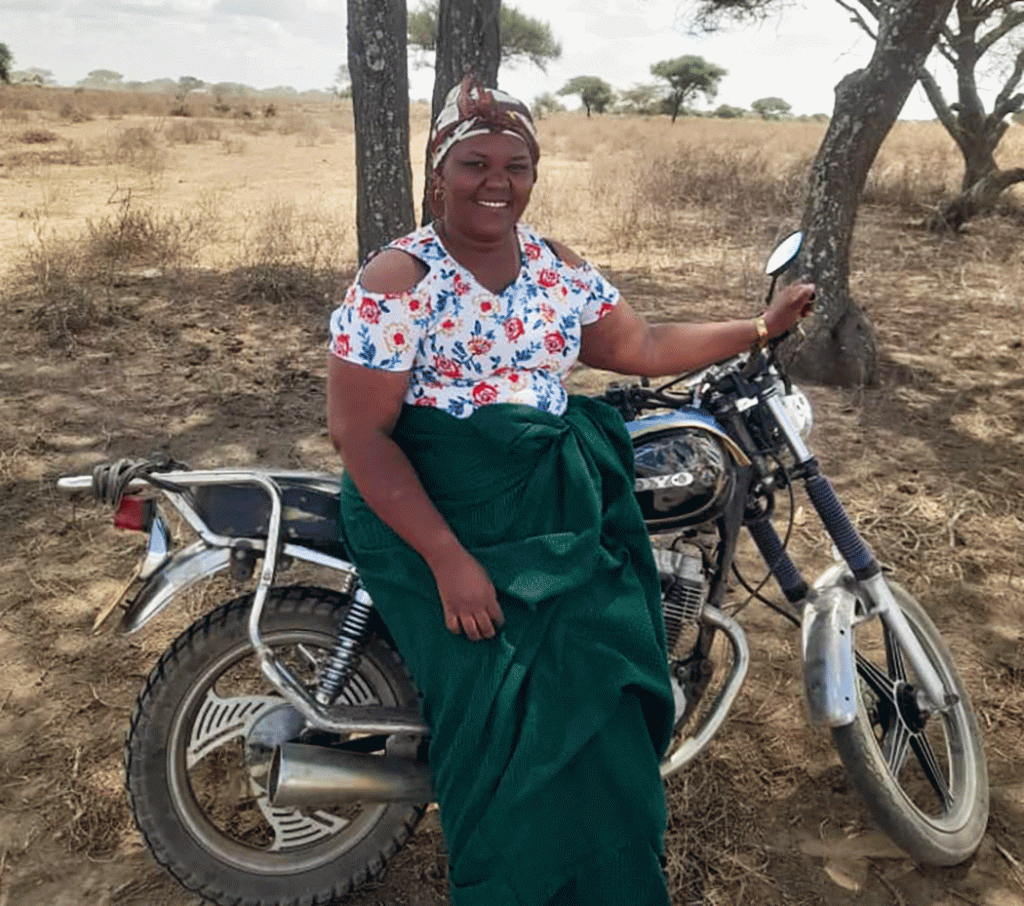
At six in the morning, thunderstorms rumble through Fairfield. Isabel and I sit at our computers as rain slashes against the windows. It’s our daily ritual—checking overnight WhatsApp messages from Tanzania. We’ve helped coordinate TM projects in Tanzania for many years, but messages from Penina always bring a fresh sense of urgency and hope.
Penina, the first Maasai woman to teach Transcendental Meditation, lives near Arusha, in Moshono, beneath the commanding shadow of Mount Kilimanjaro. Her text messages instantly bridge continents. “Loserian called. He wants me back immediately. New village leaders need TM now. Can I go tomorrow?”
“Yes,” Isabel quickly replies. Within moments, I transfer funds through WorldRemit to her phone. Seconds later, Penina confirms receipt. By noon the next day, she had packed her teaching materials, a small suitcase, and scooped up Chadrick, her energetic toddler. Married to Emmanuel, a Maasai man, Penina has four children. Chadrick—just over a year old—has traveled with her since he was six months old.

Driving into relentless rains toward the Simanjiro district, deep in Maasailand, Penina’s journey slows. The roads dissolve into mud; a three-hour trip becomes nearly five. As evening shadows gather, elephants lumber beside her vehicle, giraffes glide gracefully through misty twilight, zebras flash briefly through the headlights. Beside her, Chadrick points excitedly—to him, every animal is another kind of cow, another friend.
Last spring, two thousand Maasai were compelled to relocate, making room for luxury tourism and hunting preserves. Loserian planned a village gathering around important news: the eviction from their ancestral lands is postponed for a long time.

How did it happen? According to the scientifically studied Maharishi Effect, when one percent or more of a population practices TM, negative societal trends reverse. Crime declines, community health improves, relationships strengthen, and clearer decisions emerge. The growing number of Maasai meditators seems quietly, steadily, to be reshaping their destiny.
Penina sees this clearly. For Maasai women, whose lives are a continuous thread of hardship, silence is transformative. Typically waking before dawn, around 5:00 or 5:30, they milk cows and goats, fetch water, tend children, and cook meals over smoky fires. Their days stretch endlessly, from early morning until long past sunset.
Against this backdrop, TM offers unexpected joy—just quiet, inner settling. For many Maasai women, Penina’s classes beneath shady acacia trees are their first structured learning ever. Frequently, during lessons, they spontaneously jump up singing and dancing.
Demand vastly exceeds Penina’s reach. Last month alone, she taught 320 villagers, yet more than 4,000 wait patiently. Her phone constantly rings: “When are you coming, Penina?”
Stories of individual transformation resonate deeply. One woman, Naserian, persistently called Penina after seeing her friend’s anger replaced by laughter and patience. “Please teach me, Penina,” Naserian pleaded. “I need what my friend has!”
This is part of something wider that’s blossoming across the hills and plains of Tanzania. As International Directors for the TM program, Isabel and I work closely with Jim and Melanie Schaefer and their organization, Partners for World Peace. Together, we support an organization that has brought TM to more than 40,000 Indigenous people in 13 indigenous tribes over the last six years.
Maasai Proverbs
We’ve gathered timeless Maasai wisdom—proverbs passed down for generations—into a beautifully designed booklet, Beneath the Sky of the Serengeti. It’s a glimpse into the values, humor, and insight that shape village life and leadership in Tanzania. You can receive your free copy here: tinyurl.com/serengetiproverbs
